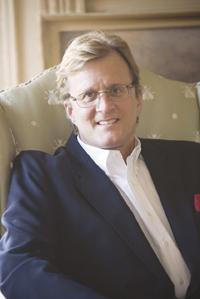 |
|
Documentary Filmmaker Set For New Look at Forgivenessby KRISTEN ARMSTRONG, Staff Writer |
|
| Put yourself in the shoes of a
Holocaust victim, or a family member of someone killed in the the
terrorist attack on the World Trade Center. Would you be able to forgive
the perpetrators of these tragedies? Are there certain transgressions
that cannot be forgiven? These are the questions Middleburg resident Paul Dietrich and his partners ask in the documentary, “Unforgivable,” which they hope will air on WETA public broadcasting channel in spring 2009 (Dietrich currently is in negotiations with the station). “Is there anything that one person can do that can't be forgiven?” Dietrich asked in a recent interview. “The answer is that this is a very hard question.” The idea for the project stemmed from Simon Wiesenthal's book, “The Sunflower,” which tells the story of a victim of the Holocaust, who then encounters a Nazi officer begging for his forgiveness. Dietrich, an investment advisor, and his business partner Ian Watson were struck by the book, and decided to explore the question of forgiveness in today's world. Since Dietrich spent some time in the television industry earlier in his life, making a documentary for public television seemed to be the right way to deliver the findings. “We thought that, given everything that was happening in the world after 9/11, we ought to go about this in a journalistic manner,” he said. “We have no axe to grind. We just wanted to see what people thought about this issue.” With the help of acclaimed director Helen Whitney - who has been nominated for an Academy Award, six Emmy Awards and has won the Peabody Award, among many others - filming for “Unforgivable” has already begun and should be completed by winter of next year. Facets of forgiveness that the documentary will delve into include violence, psychology (especially the psychology of love, compassion and reconciliation), nature and the mundane, law, genocide and grace and love. Dietrich already has interviewed the Dalai Lama for the documentary, and speakers also will include other spiritual leaders, writers, psychologists, academic researchers and celebrities. Although filming is still in the early stages, Dietrich is taking his role as co-senior executive producer seriously and has done extensive research on the subject. He has read thousands of articles and virtually every book in English on interpersonal forgiveness. “It's definitely a process,” he said. “If someone does something really terrible to you, if you don't have immediate feelings of anger and seek revenge, you're not wired as a human.” While the primary goal of the documentary is to provide an objective look at forgiveness, Dietrich said he also hopes that “this is a possible road map to see how other people have struggled with this issue.” |
 |